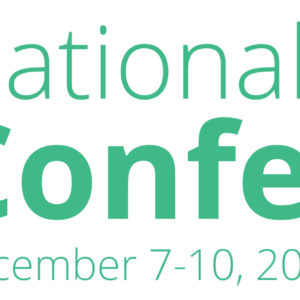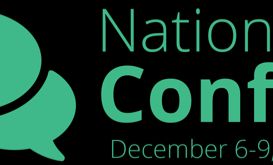The National Sex Ed Conference is fast approaching. Among the educators scheduled to present are Mark Levand and Sasha Canan, who are speaking about the sexualization of sex educators. Attendees of Levand and Canan’s presentation will be given a platform for understanding and processing how they can and have been sexualized based upon their profession, and will pick up tips on dealing with future instances of sexualization. Here, they share a bit about the work they do, and about why it’s important to talk about the ways in which sexuality professionals are so often sexualized against their will.
Tell me about yourself. What keeps you busiest these days?
Mark: I am a doctoral candidate at Widener University in the Center for Human Sexuality Studies, writing my dissertation on managing issues of sexuality at Catholic colleges and universities. I am kept busiest by teaching two classes on human sexuality at Delaware and Montgomery Community Colleges, writing and collaborating on several different projects, and working as Widener’s Interfaith Program Coordinator. Working on my dissertation happens in between the above activities.
Sasha: I am a doctoral candidate of Public Health at the University of Arkansas working in the Sexuality Education and Consent Lab. My time is split between teaching public health courses, working on research projects inside and outside my department, coordinating my lab’s undergraduate research assistants, and partnering with community organizations on TRANSform Health Arkansas, a project working toward improving healthcare needs of the Trans* community in Arkansas.
What are your main areas of interest within the field of sexuality?
Mark: My main areas of interest are sexual ethics, sexual consent, cross-cultural sexuality, and the intersection of sex and faith. My special niche is Catholic theology and sexuality. My current research is about engaging Catholic colleges and universities in the dialogue about protocol for transgender students, as well as fleshing out theories on sexual consent.
Sasha: I research sexual health disparities with a particular focus on sexual violence. My dissertation examines rape and sexual assault victimization in lesbian, gay, and bisexual identified people. My next plans are to examine this further in Trans* identified people.
What has most informed your trajectory within this field?
Mark: Ultimately, the amount of misinformation and harmful messages around sexuality that exist in our world inform my trajectory. When I encounter people who are frightened about sexuality or have very little or wrong knowledge about basic sexual anatomy, I am reminded about our broken system for sex education and research. Empowering people to make their own best informed choices continues my trajectory within the field.
Sasha: Personal experience met professional experience. As a rural woman, I learned from the other women in my community that sexual assault was (1) a very real threat and (2) should be dealt with in a “we take care of our own problems” fashion. Coming into academia, mentors guided my understanding both of sexual assault and intersecting systems of disenfranchisement. Seeing the problem in a new, more complex light, I pursued working relationships with professionals who would push me further into this field.
What obstacles have you faced over the years, and how did you overcome them?
Mark: In the field of sexuality, a majority of the obstacles I face have to do with convincing colleagues that it is a necessary field of study. When discussing with a mentor about going into the field of sexuality, he said “Why would we need that? We have health teachers here.” His very position is exactly why I do what I do: to show people the importance of the interdisciplinary nature of sexuality and how we can best discuss sexual issues in various disciplines with current information. Often, because many older mentors of mine have had little to no sex education and still “made it out alright,” I find myself engaged in conversations about how more accurate information is very helpful to many people today.
Sasha: I’m going to echo Mark’s sentiments of people not valuing sexuality studies as a discipline and apply that to funding. For a subject that is so important in many people’s lives, funding sources are, comparatively, few and far between. There is a lot of great research and programming out there that isn’t getting off the ground because funding is so competitive. As a young professional, I try to overcome this by writing proposals with others who know how to “walk the walk” with respect to grants. Although this could help my projects get consideration, it doesn’t work to fix the root of the problem.
Was sexualization one of the issues you’ve come up against personally? When did you realize there was a need for a presentation on this topic?
Both: Of course. We are sex educators. We have had both personal and professional encounters with people who make jokes or sexualize us because of our jobs. We realized there was a need to discuss this from personal experience, stories from friends and colleagues, and literature regarding the sexualization of sex researchers. We both have had former students ask about “special training” or ask us out on dates. Thankfully, during our graduate program in human sexuality, the professors at Widener University started conversations about how we might encounter this phenomenon in the world when we choose sexuality as a profession. We thought it would be important to take those informal or local conversations and present them formally to a national audience of sex educators.
What is the main takeaway you hope conference attendees will get from your presentation?
Both: We hope that attendees will feel better prepared to handle these situations going forward. We hope sharing experiences and engaging in dialogue about this type of sexualization might help people be more informed and prepared should it occur in their lives. And while it is certainly not our fault that we as sex educators are sexualized, conversations of how to deal with and push back on these experiences are probably going to start with us.



